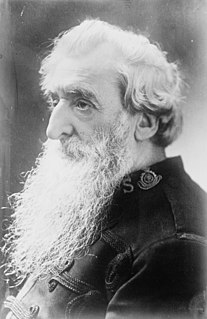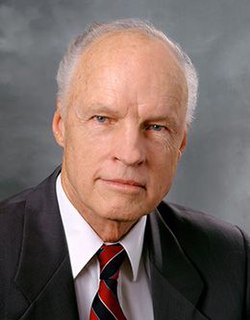A Quote by John Shelby Spong
The church had to find a way to protect Jesus' perfection so that he could do the work of salvation which, in their frame of reference, only God could do, because God had to come into this world from outside this world to rescue the fallen creation.
Related Quotes
But his Lordship [tells]us that God is wholly here, and wholly there, and wholly every where; because he has no parts. I cannot comprehend nor conceive this. For methinks it implies also that the whole world is also in the whole God, and in every part of God. Norcan I find anything of this in the Scripture. If I could find it there, I could believe it; and if I could find it in the public doctrine of the Church, I could easily abstain from contradicting it.
Another hallmark of Christianity is that salvation is not individualistic-it's not something one person receives for himself or herself. Salvation is the reign of God. It is a political alternative to the way the world is constituted. That's a very important part of the story that has been lost to accounts of salvation that are centered in the individual. But without an understanding that salvation is the reign of God, the need for the church to mediate salvation makes no sense at all.
Geometry, which before the origin of things was coeternal with the divine mind and is God himself (for what could there be in God which would not be God himself?), supplied God with patterns for the creation of the world, and passed over to Man along with the image of God; and was not in fact taken in through the eyes.
What is God like? Because millions and millions of people were taught that the primary message - the center of the Gospel of Jesus - is that God is going to send you to hell, unless you believe in Jesus. And so, what gets, subtlely, sort of caught and taught is that Jesus rescues you from God. But what kind of God is that; that we would need to be rescued from this God? How could that God ever be good; how could that God ever be trusted? And how could that ever be good news.
It shouldn't be difficult, then, to make the transposition at this point into the early Christian vision of Jesus and the Spirit and the way in which the material world is both celebrated and renewed through their work. The Jewish basis for the early Christian patterns of belief and behavior is clear. It is important that God's people are embodied, because God made this world and has no intention of abandoning it. The material of creation is a vessel made to be filled with God's new life and glory, even though the transformation may involve suffering, persecution, and martyrdom.
I will tell you the secret: God has had all that there was of me. There have been men with greater brains than I, even with greater opportunities, but from the day I got the poor of London on my heart and caught a vision of what Jesus Christ could do with me and them, on that day I made up my mind that God should have all of William Booth there was. And if there is anything of power in the Salvation Army, it is because God has had all the adoration of my heart, all the power of my will, and all the influence of my life.
Man is sitting disconsolate on an anthill one morning. God asks him what the matter is and man replies that the soil is too swampy for the cultivation of the yams which God has directed him to grow. God tells him to bring in a blacksmith to dry the soil with his bellows. The contribution of humanity to this creation is so important. God could have made the world perfect if he had wanted. But he made it the way it is. So that there is a constant need for us to discuss and cooperate to make it more habitable, so the soil can yield, you see.
For me, as a believer, I found myself in between two worlds because I live in this world, this fallen world, and I want to glorify God here, and I want to point to Jesus here, I want to work here and live with my wife here, but I also look forward to the recreation of this world when the Lord Jesus comes back and makes all things new.
The world could not long ignore a holy church. The church is not despised because it is holy: it is despised because it is not holy enough. There is not enough difference between the people inside the church and those outside to be impressive. A church in which saints were as common as now they are rare would convict the world, if only by contrast. Sanctity cannot be ignored. Even a little bit is potent. So far from the gates of hell prevailing against it, it hammers on their triple steel.
I have faith that if we caught hold of God's living candle on that truth and went out into the world-I don't care [what vocation] -just out in the world being true to the vision, we would not need to defend the cause of Jesus Christ. People would come and ask; "Where have you found the radiance that I sense in your eyes and in your face? How come you don't get carried away with the world?" And we would answer that the work of salvation is the glorious work of Jesus Christ. But it is also the glorious work of the uncovering and recovering of your own latent divinity.





































